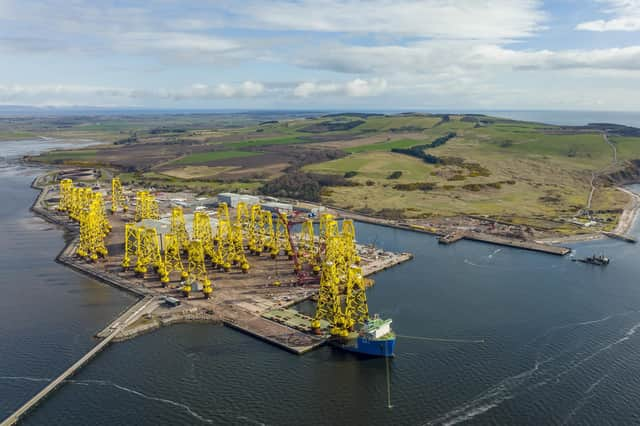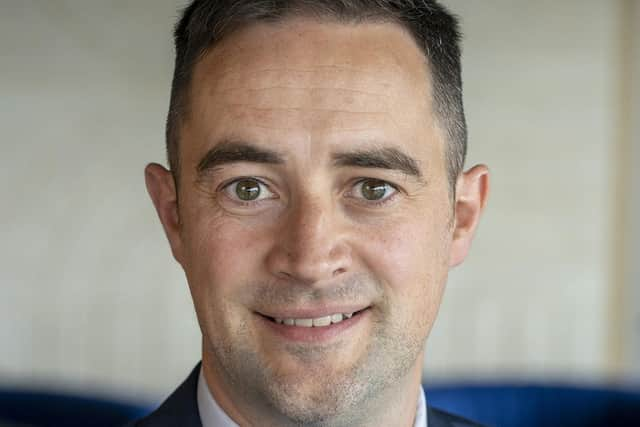Embrace the opportunity Green freeports bring


The establishment of freeports is part of the UK government’s levelling-up strategy but, particularly in Scotland’s Green Freeports, there is also an objective of stimulating growth in the offshore renewable energy sector. Such a stimulus is being injected into that sector at a crucial time in the development of Floating Offshore Wind (FLOW) technology and Scotland’s wider decarbonisation objectives.
Home to half of the world's pioneering floating commercial wind farms, Scotland is currently the global market leader in FLOW. In 2022, Crown Estate Scotland announced the selection of 17 projects as a result of the ScotWind leasing round. This means up to 28.6 Gigawatts (GW) of new generating capacity will be built over the coming decade, which, according to National Grid's recent Beyond 2030 report, could meet just under half of Britain's current peak electricity demand (roughly 58GW).
Advertisement
Hide AdAdvertisement
Hide AdFLOW wind turbines are colossal engineering structures designed for use in deeper waters where fixing the turbine to the sea floor is not feasible. Many key components of a wind turbine come from outside the UK, and the logistics of construction are such that the various components need to be delivered to a single onshore marshalling area before being loaded onto specialist construction vessels for transport to the site – often more than 12 nautical miles off the UK coast.


The Scottish ports selected for Green Freeport Status (Forth Green Freeport and Inverness and Cromarty Firth Green Freeport) are prime locations for servicing the construction of the planned FLOW wind farms. They already have much of the onshore infrastructure, such as the crucial quayside laydown areas necessary for the marshalling of the various component parts. They are also home to a skilled workforce established through experience of working in the oil and gas industry.
Following legislation being passed at Westminster and Holyrood, the tax sites for the Inverness and Cromarty Firth Green Freeport have now been confirmed (tax sites in the Forth Green Freeport are still to be confirmed). Businesses established in the tax sites can benefit from customs and VAT duty deferrals, suspensions and exemptions with clear cash flow benefits to those with an international supply chain and customer base.
A key customs benefit is the ability to import component parts into the Green Freeport area, work on them within that area and then export (i.e. moving them more than 12 nautical miles off the UK coastline), all without triggering any customs liabilities. This benefit neatly fits with the FLOW construction process.
In addition to the customs and VAT benefits, generous tax incentives, including property tax reliefs, enhanced tax deductions on investment and employment tax relief for new hires will incentivise investment in workforce, facilities and infrastructure and stimulate growth within Scotland's Green Freeports tax sites and the surrounding areas. These tax and customs benefits will now last for 10 years (following the announcement in last month's budget).
The FLOW sector is international with both its supply chains and development locations spreading around the globe. Securing Scotland as a key location in its further development is, therefore, not guaranteed despite how mature the sector is here in comparison to other areas. With the fixing of the new tax and customs sites within Scotland's two Green Freeports, now may well be a pivotal moment in terms of landing inward investment and securing Scotland's place as a key centre for the FLOW sector.
Alasdair Graham is Senior Associate at Dentons. Roddy Cormack, also Senior Associate at Dentons, contributed to this article.